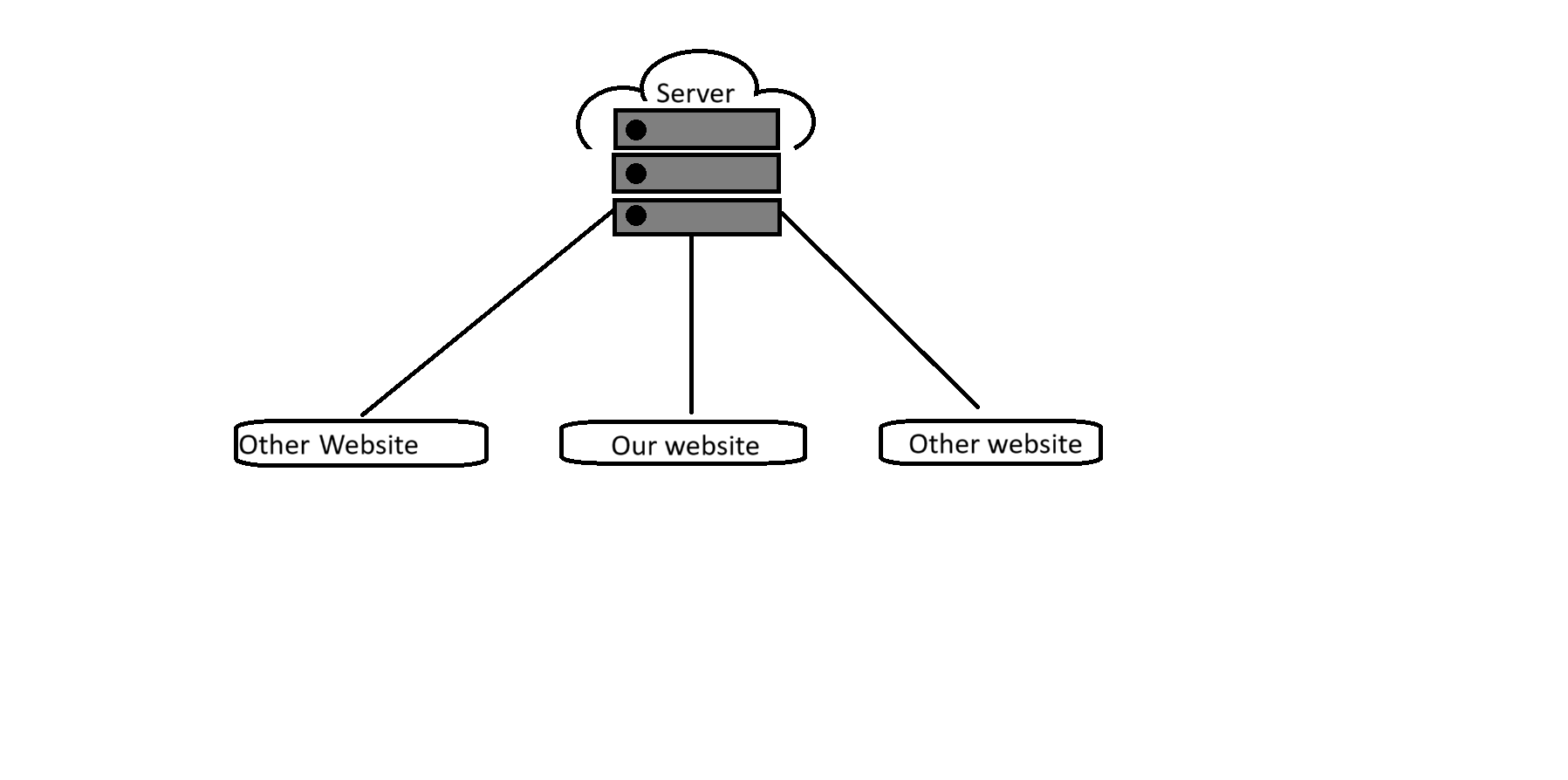What is Web Hosting?
April 19, 2025
Web hosting is like a computer where we store our website files and data. Wherever this data is stored is referred to as a host.
The companies that provide hosting services are called web hosting companies. A web host must run 24/7 and be connected to the internet in order to make your website accessible online.
Web hosting is essentially a computer — it also has a processor, RAM, HDD, or SSD. Depending on the user’s requirements, hosting companies provide either an entire CPU or a portion of storage where website files and data are stored.
How Does Hosting Work?
Whenever a user types a URL in the browser, a request is sent to the web server. The server then responds by sending a copy of the requested webpage back to the user.
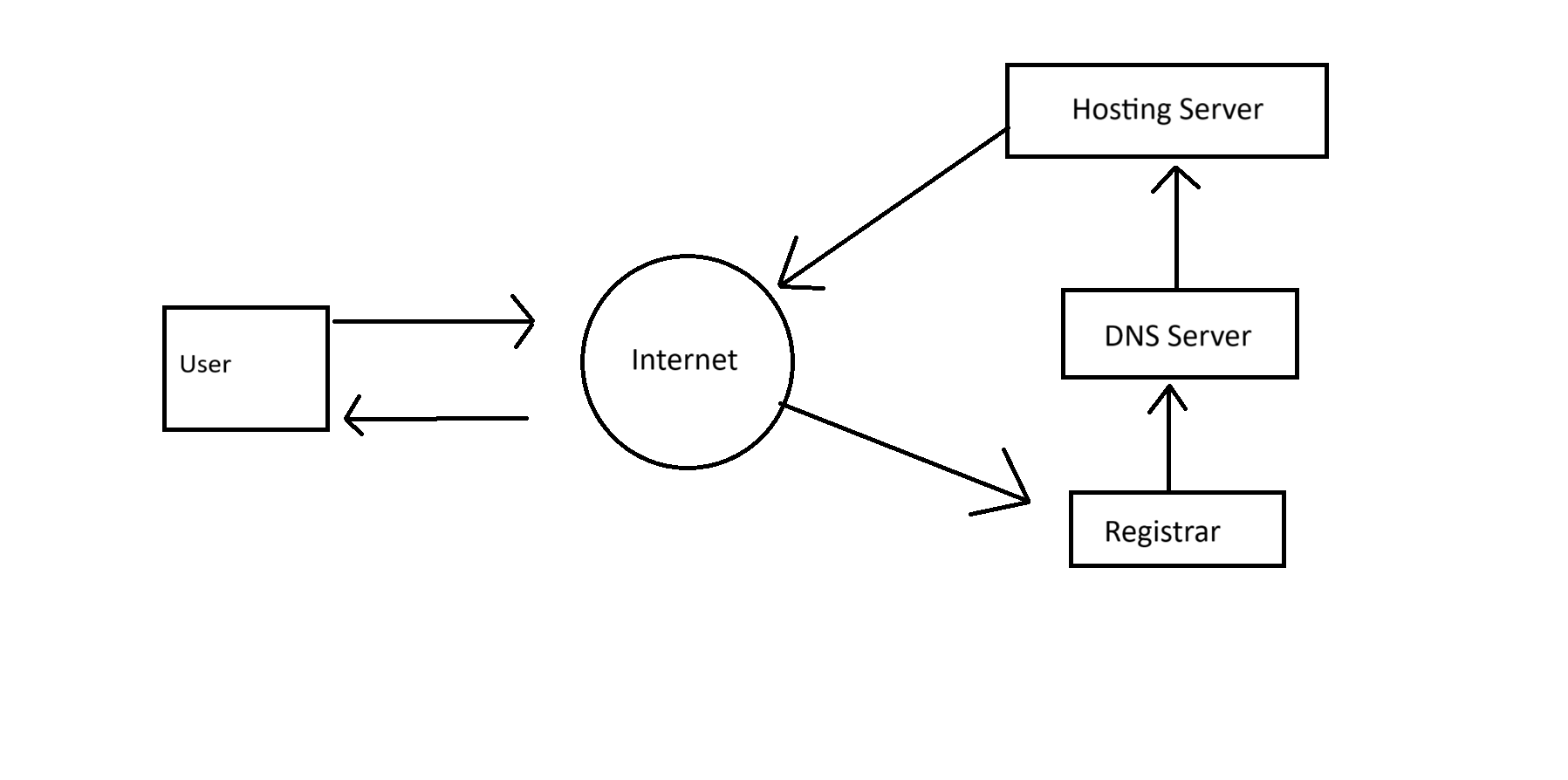
Types of Web Hosting
- Shared Hosting
- VPS Hosting
- Dedicated Hosting
- Cloud Hosting
2. VPS Hosting
The main server is divided into multiple virtual private servers, each dedicated to one website. Ideal for handling more traffic and custom configurations.
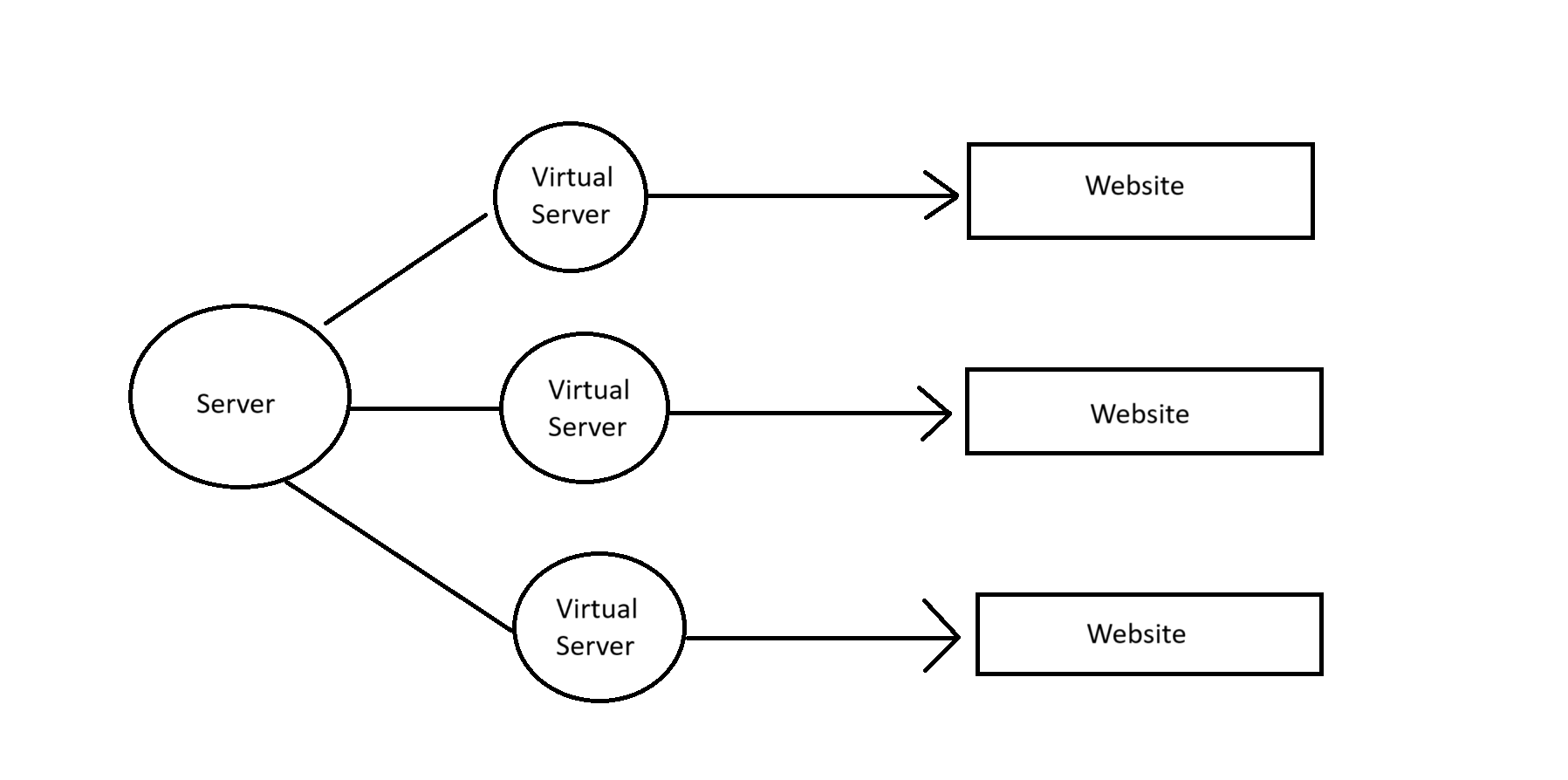
Unlike shared hosting, where all websites share the same resources, VPS hosting gives you more control, security, and performance by having specific server for one website.
Each websie has its own virtual server.
How VPS hosting works?
- A physical server is partitioned in different mini servers using virtualization technology.
- Each partition acts like an independent server, with its own operating system and resources.
- You get root access to your virtual server, allowing custom configurations.
Cons:
- More Expensive than shared hosting
- It can be overwhelming for some beginner
3. Dedicated Hosting
More expensive but ideal for heavy traffic. You get an entire CPU/server just for your site. Used by sites like Amazon, Flipkart, etc.
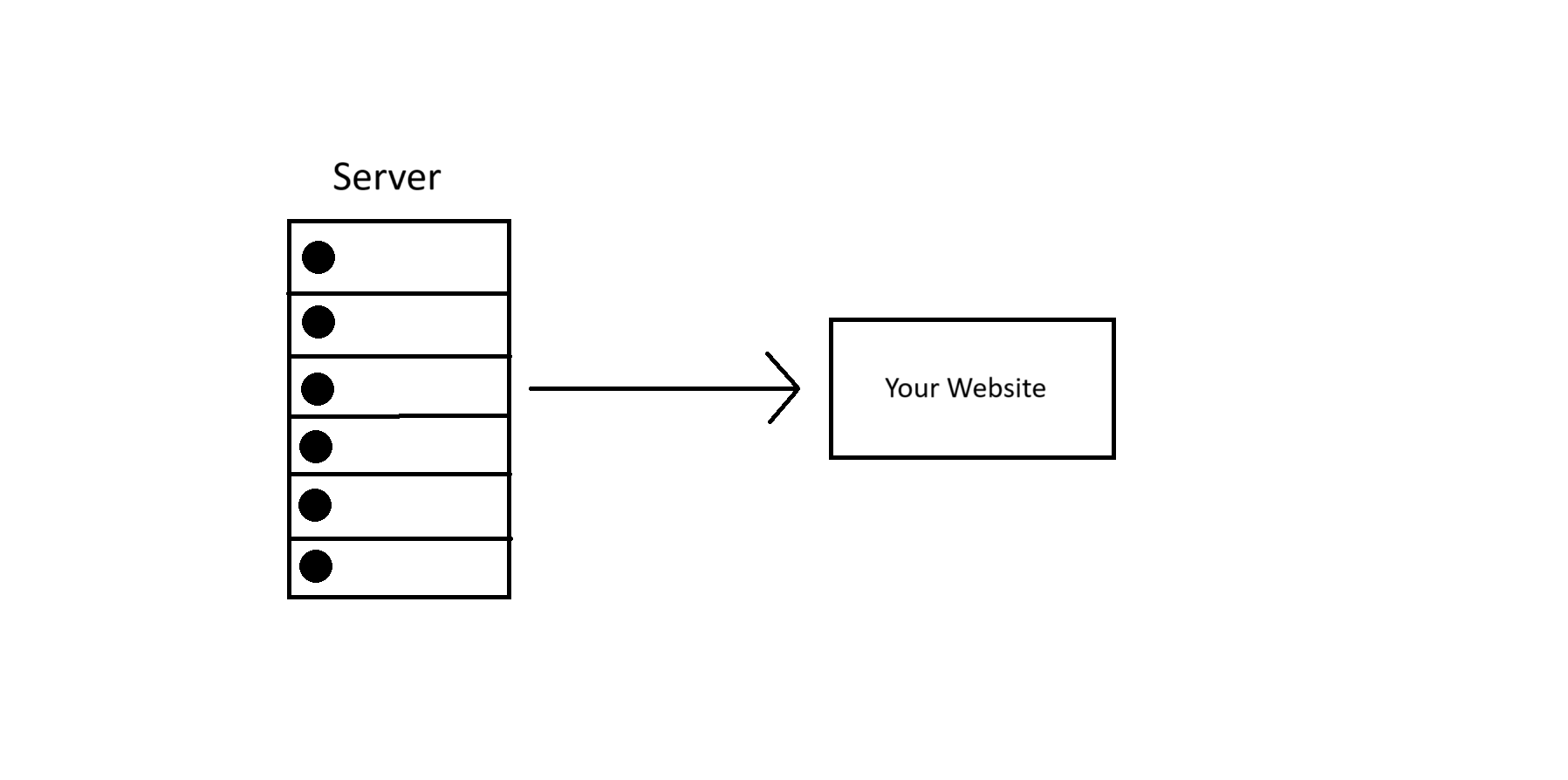
In dedicated hosting a web hosting service provider set up a physical server just for you.
Cons:
- It has high cost than Shared/VPS hosting.
- Need technical experties .
4. Cloud Hosting
Cloud Hosting is a type of web hosting that uses multiple remote servers connected together to create a virtualized server environment. Basically a group of servers which are on different location across the globe. A popular, scalable option using a group of servers in different regions.
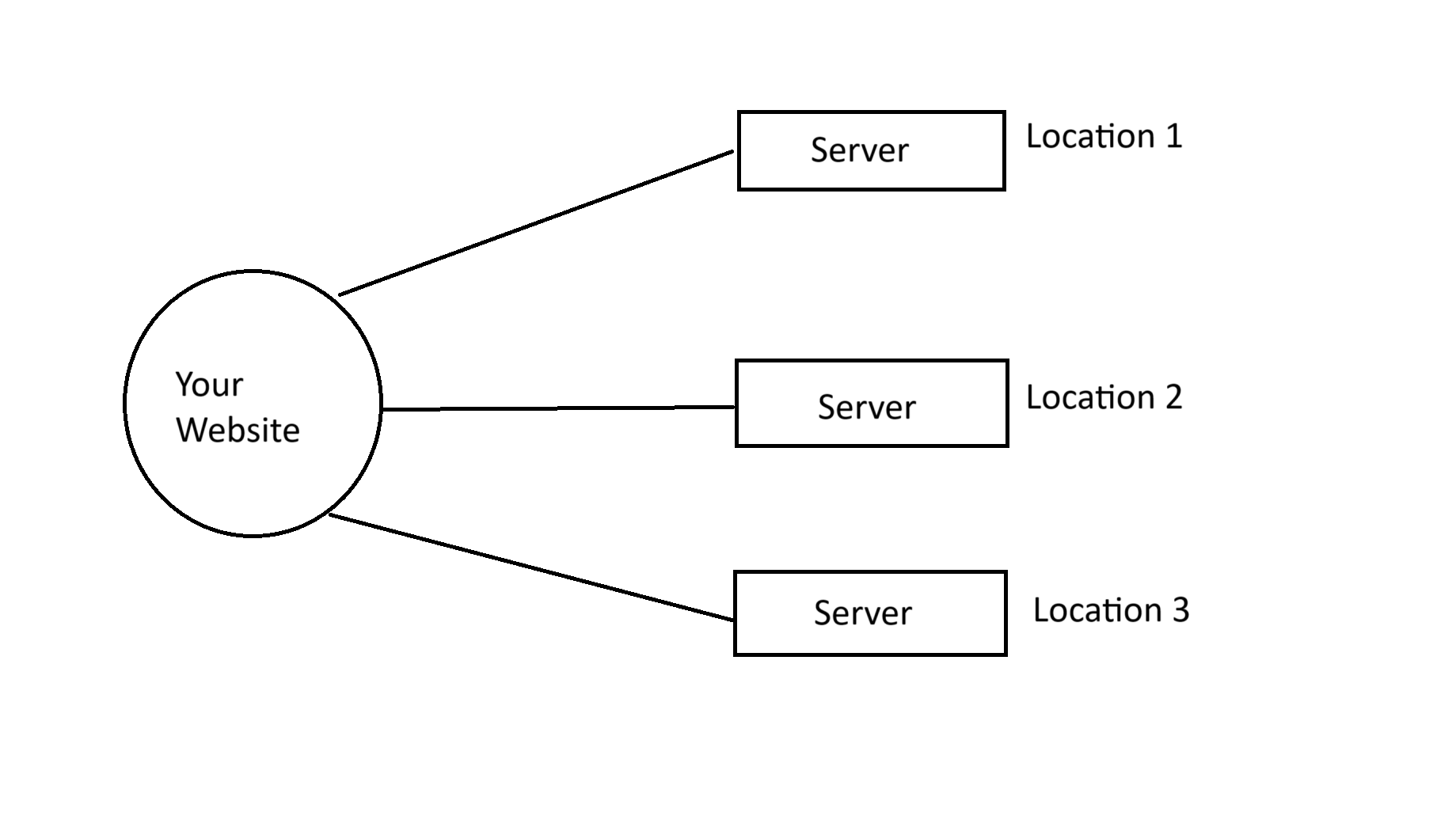
Instead of depending on one server, your data is stored on all the virtual servers, so that if one server go downtime, , another can be serve as a secondary option.
How does Cloud hosting works?
- instad of one server, multiple servers are used.
- When the user visit our site it will get redirected to the nearest or less busy server.
- When one server get fails/downtime, the another server take over instantly, keeping our site online.
Key Points to Consider
- Uptime Guarantee: Choose hosts offering 99.99% uptime.
- Scalability: Can it handle growing traffic?
- Security: Look for firewall, malware scan, SSL, DDoS protection.
- Speed: SSD storage, server caching, HTTP/2 or HTTP/3 support.
- Support: 24/7 live chat, phone, or ticket support.
- Backups: Daily/weekly backups with restore options.
- Control Panel: Access via cPanel, Plesk, or custom dashboards.
Our Thoughts
Web hosting is more than just where your website lives — it’s critical for performance, scalability, and security.
Whether you're hosting a business, personal, or portfolio website, choosing the right solution means understanding both your needs and the hosting platform's capabilities.
As your project scales, moving from shared hosting to cloud or container-based infrastructure may be necessary — but it all starts with a solid understanding of the fundamentals.
